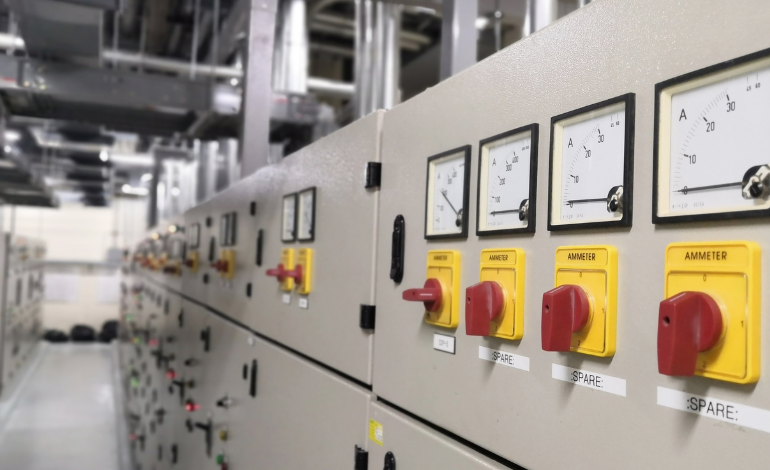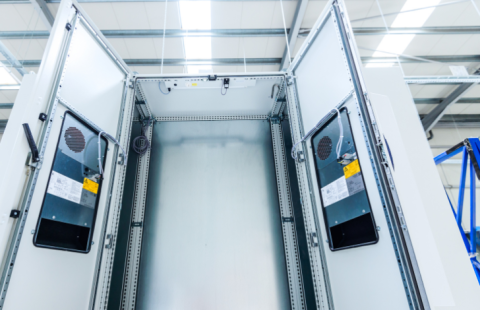Blog
- Home
- Electrical Enclosure
- ELECTRICAL PANEL ENCLOSURES; A Guide to Their Benefits And Understanding How It Works.

ELECTRICAL PANEL ENCLOSURES; A Guide to Their Benefits And Understanding How It Works.
Introduction
An electrical enclosure is a cabinet for electrical or electronic equipment to mount switches, knobs and displays and to prevent electrical shock to equipment users and protect the contents from the environment. The enclosure is the only part of the equipment which is seen by users. It may be designed not only for its utilitarian requirements, but also to be pleasing to the eye. Regulations may dictate the features and performance of enclosures for electrical equipment in hazardous areas, such as petrochemical plants or coal mines. Electronic packaging may place many demands on an enclosure for heat dissipation, radio frequency interference and electrostatic discharge protection, as well as functional, esthetic and commercial constraints.
Electrical enclosures can be made of a variety of materials, including carbon steel, aluminum, stainless steel, and non-metallic materials. The choice of material will depend on various factors, such as the environmental conditions, the size and weight of the electrical equipment, and the level of protection required.
Electrical Panel Enclosures: All You Need to Know
In its simplest terms, an electrical control panel is a combination of electrical devices which use electrical power to control the various mechanical functions of industrial equipment or machinery. An electrical control panel includes two main categories: panel structure and electrical components.
Selecting the suitable electrical enclosure type not only saves lives but equally a lot of money in operating expenses. Because there are different types of electrical enclosures, it is challenging to choose the type that best suits your unique application. To aid you out, we will discuss few of the common types of electrical enclosure boxes used today.
Polycarbonate Plastic Electrical Enclosures: Polycarbonate electrical enclosures are typical less costly in comparison to metal enclosures and provide excellent impact resistance. Also, polycarbonate plastic enclosures are exceptionally versatile and appropriate for a broad range of outdoor and indoor applications.
Aluminum Electrical Enclosure: Aluminum electrical enclosure cabinets are more costly in comparison to plastic enclosures. These types of electrical enclosure boxes are exceptionally durable and can endure high temperatures. Moreover, aluminum electrical enclosure cabinets have high corrosion resistance and provide natural RFI/EMI shielding to hinder interference.
Stainless Steel Electrical Enclosure: These types of electrical enclosures are fire-resistant and are highly suitable for wet environments. However, stainless steel electrical enclosure boxes are typically costlier than other enclosure types.
Mild Steel Electrical Enclosure: The mild steel electrical enclosures are fabricated with high strength materials such as 304 stainless steel, 316 stainless steel and galvanized steel.
This makes them have a tough and rigid construction. To make them corrosion-resistant, mild steel electrical enclosure cabinets feature a powder coat paint. Due to the coating, they are long-lasting and allow for both outdoor and indoor use.
Galvanized Steel Electrical Enclosure: The galvanized steel electrical enclosures are strong and specially manufactured for outdoor applications within harsh environmental conditions. They offer affordable yet long-lasting protection solutions.
Benefits of Electrical Panel Enclosure
1. These panels are essential for industrial automation as they constantly monitor different industrial controls. This way, they help experts control and organize production objectives.
2. Industries can get the panels custom-made to their requirements. They can opt for a simple relay system, or a much more complex industrial control panel, for cohesive control of mechanical aspects of their machinery and different industrial equipment.
3. They offer enhanced reliability by constantly monitoring equipment and providing experts with data every minute.
4. The panels are capable of handling complex electric controls. If you hire an expert team to design these panels as per the necessary requirements, they can manage the most complex industrial setup.
5. These panels are weatherproof, which means you can place them both indoors and outdoors as they won’t rust or get damaged with changing weather conditions.
6. Electrical control panels are hazard-proof, ensuring no risk of electrical shocks or fire outbreaks (it is safe to work in and around the panels).
7. These days, many companies provide aesthetically pleasing industrial control panels. As such, these panels do not interrupt the beauty of buildings.
8. Electrical control panels simplify the process for industrial experts. With the controls provided on a panel, experts can design and organize the process control of different machines and operations.
9. With increased efficiency, industries can expect a reduction in their overall processing cost.
10. As experts can control the mechanical processes, there is little chance of any flaw or process giving an undesired outcome.
Conclusion
Electrical control panels are an essential part of many industries, including food and beverage, manufacturing, oil and gas, agriculture, and more. To start this process, get in touch with a leading manufacturer of industrial control panels to receive the necessary technology that meets all of your needs and expectations.

